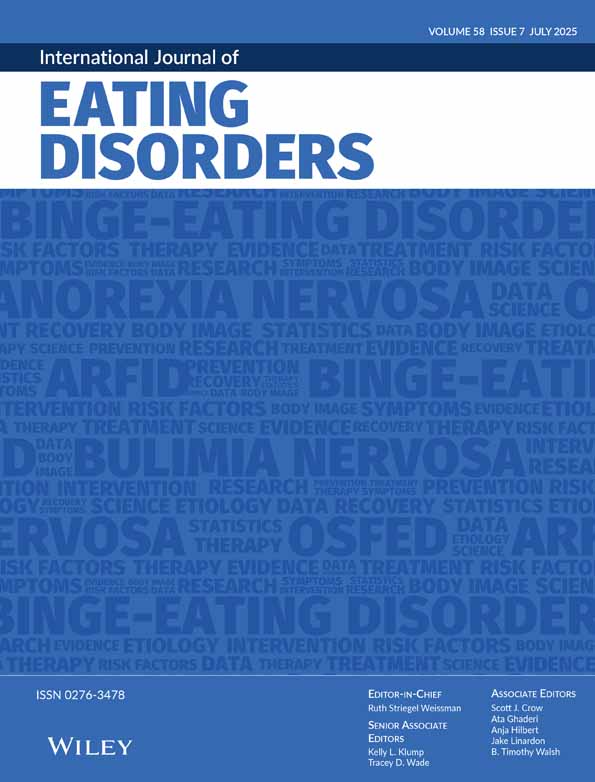BMI, body composition, and the energy requirement for body weight gain in patients with anorexia nervosa
Abstract
Objective
Theories abound about the energy requirements for body weight gain in anorexia nervosa (AN). We hypothesized that malnutrition status affects the energy requirements.
Method
On admission, 97 AN patients were measured for body composition by dual-energy X-ray absorptiometry. The relationship between body mass index (BMI) and body composition was investigated. In addition, 21 patients who completed our treatment program were tested for energy intake and body weight.
Results
The relationship between BMI and both fat-free mass and fat mass (FM) on admission was curvilinear. The weight gain per excess energy was greater in the group of patients with FM < 4 kg or BMI < 14 kg/m2 than in the group with FM ≥ 4 kg or BMI ≥ 14 kg/m2 (p = .037, p = .055, respectively).
Discussion
The energy requirements for weight gain in AN patients are related to the initial FM and BMI. © 2009 by Wiley Periodicals, Inc. Int J Eat Disord 2010




